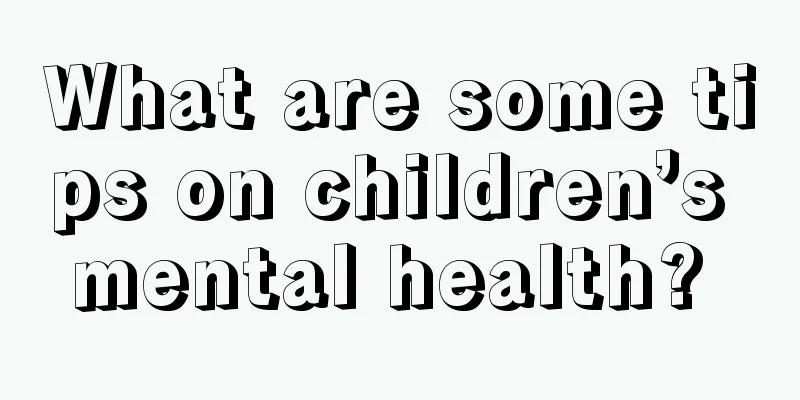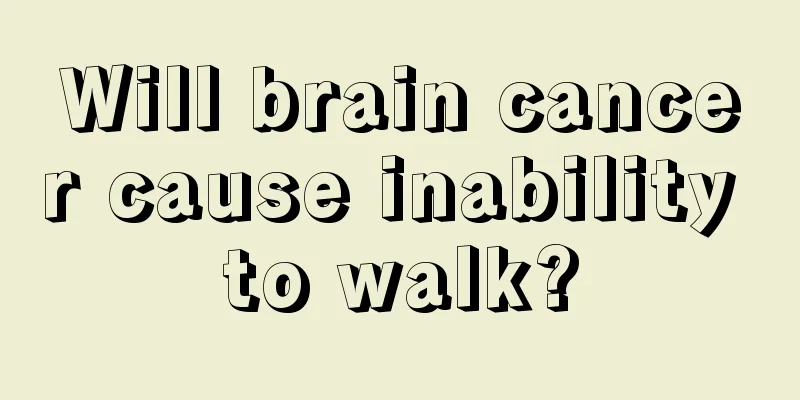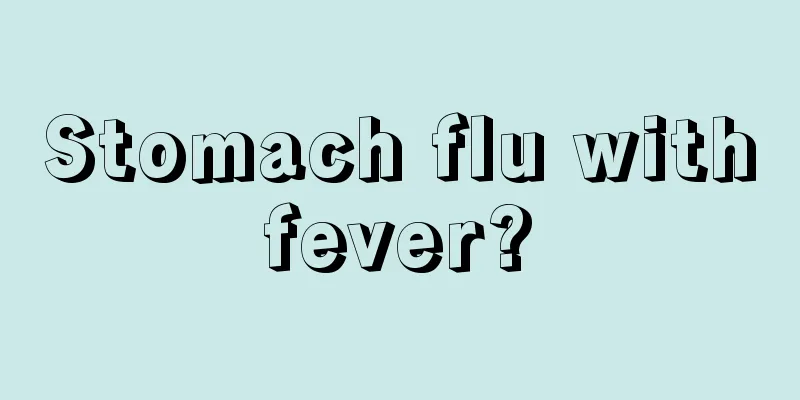What are some tips on children’s mental health?

|
With the development of society, various psychological problems are becoming more and more serious, such as the well-known anxiety, depression, and phobia. These mental illnesses are not as obvious as physical illnesses, but their harmfulness is no less than physical illnesses. Some mental illnesses can even cause serious consequences, so we must pay attention to mental health issues. Here are some tips for children's mental health. Children's mental health knowledge: 1. Relaxation training to keep you relaxed at all times, thereby relieving tension, anxiety, etc. 2. Simple behavior correction - positive reinforcement method. By rewarding target behaviors and ignoring or downplaying abnormal behaviors, the occurrence of target behaviors can be promoted. 3. Rational emotive therapy. Ellis, a famous American psychologist, believes that what causes people's emotional distress is not the events happening in the outside world, but people's attitudes, opinions and other cognitive content towards the events. Therefore, to change emotional distress is not to focus on changing external events, but to change cognition, and then change emotions by changing cognition. 4. Systematic desensitization method. Mainly used for phobias. 5. Shock therapy. Mainly used to treat fear and other negative emotional reactions. 6. Aversion therapy. It is often used to quit smoking, drinking, internet addiction, and treat obsessive-compulsive disorder, etc. 7. Cognitive behavioral therapy. Change negative cognition and eliminate negative emotions and behaviors by changing thinking and behavior. Symptoms of mental illness in children 1. Hyperactivity: Children’s psychological behavior can be reflected in their behavior, and some children have "attention deficit hyperactivity disorder". The main manifestations are hyperactivity, lack of concentration, mood swings, poor self-control, and serious impact on learning. 2. Anxiety: refers to a sudden state of fear with no obvious physical cause. The specific manifestations are lack of self-confidence, excessive sensitivity, loss of appetite, and crying for no reason. This type of children react sensitively to unfamiliar environments, and become worried, fearful, even panic-stricken, and cry constantly. They often worry about being laughed at by others, and they pay excessive attention to situations that have not yet happened, accompanied by unfounded worries. They also seem to be overly anxious about some trivial daily things. 3. Chronic depression: If a child is often depressed for no reason, it is likely caused by inferiority complex. 4. Terror and insomnia: Terror is manifested in the fear and desire to escape from certain things or situations, such as fear of thunder and lightning, extreme tension, and running around with one's head in one's hands. Children are afraid of things that are not dangerous or basically not dangerous, and this fear is very prominent. Children will show avoidance and withdrawal behaviors due to terror. Children with insomnia have difficulty falling asleep, often wake up during sleep, cry loudly, and even sleepwalk. However, they cannot recall these events during the day and only feel lack of energy and emotionally unstable. 5. Excessive shyness: It is normal for children, especially girls, to be a little shy. However, if they are too shy (including never daring to sing in front of other children, never wanting to show up in public, never daring to contact strangers, etc.), they may have a strong inferiority complex deep in their hearts. 6. Attack: These children run around all day, often play pranks, and like to ridicule and mock others. He has no regard for beautiful things, and has a habit of smashing them, showing aggressive behavior. 7. Poor language expression: According to statistics made by experts, more than 80% of children with low self-esteem have poor language expression. They may stutter, or speak incoherently, or lack emotion in their expressions, or have a poor vocabulary, etc. 8. Poor interpersonal relationships: Children’s interpersonal relationships mainly refer to their relationships with their parents, teachers and peers. The children’s mental health status can be reflected in these interpersonal interactions. Mentally unhealthy children generally do not have harmonious interpersonal relationships and often have communication barriers with others due to personal mental health and other reasons. He is unable to cooperate with others, is indifferent to others, lacks sympathy, is suspicious, jealous, and withdrawn, cannot place himself in a group, and is incompatible with others. |
<<: What should I do if there is too much hair down there?
>>: How to check whether the fetus is healthy?
Recommend
What causes small pimples on the inside of the neck?
The appearance of small fleshy bumps on the neck ...
What causes adnexal teratoma
Treatment of adnexal teratoma requires surgical r...
How long can a patient with advanced nasopharyngeal cancer live
How long can you live with late-stage nasopharyng...
Early symptoms of ovarian cancer Four common symptoms of early ovarian cancer
The incidence of ovarian cancer cannot be underes...
Five common senses about brainstem tumor treatment
Brainstem tumors are mostly located in the pons, ...
What are the symptoms of rib inflammation?
The ribs are an important part of the thoracic ca...
How to measure sit-and-forth position
Sit-and-reach test is not unfamiliar to many peop...
What is rosacea and how is it caused?
Many people may not know much about some skin dis...
What is the family clustering tendency of liver cancer? To prevent liver cancer, we should start from these points
According to statistics, 110,000 people die from ...
How to determine whether digestive bacteria survive
When raising fish at home, nitrifying bacteria ar...
What are the traditional Chinese medicine prescriptions for brain cancer
At present in our country, due to the continuous ...
How to nourish your body in autumn
Nowadays, the health of many people is not better...
How to remove pomegranate stains
Pomegranate tastes sweet and sour, but sometimes ...
What is the best medicine for nasopharyngeal carcinoma?
Nowadays, the Chinese medicine culture in our cou...
What are the symptoms of moderate anxiety disorder
Anxiety disorder is a relatively common mental il...









